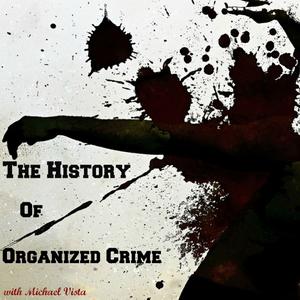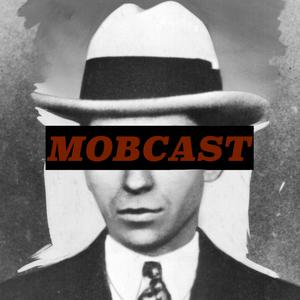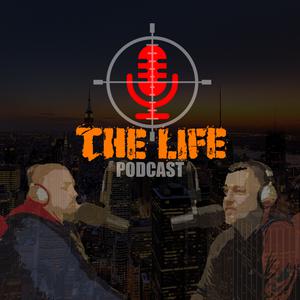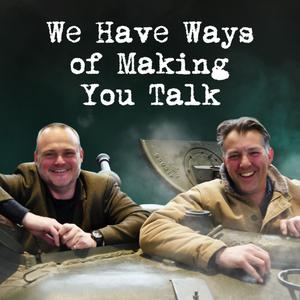
Intelligent Talk
Intelligent Talk
Exploring interesting topics and people, in a fact-based neutral way
- 32 minutes 34 secondsThe End of the Roman Republic
University of California San Diego Professor Edward Watts discusses his new book “Mortal Republic : How Rome Fell into Tyranny” with Intelligent Talk. At a time when democracy is in retreat in many parts of the world it’s an especially topical book.
The Roman Republic lasted nearly 500 years, about twice as long as the United States has currently existed, from 510 BC to 27 BC with the rise of Augustus as the first Emperor. Rome then became an empire before being sacked by barbarians in 410 AD. The Roman Empire then lived on until 1453 in what is now modern day Turkey, and was known as the Byzantine Empire.
Professor Watts discusses the series of events, beginning in 133 BC with the first acts of political violence in Rome, which led to the end of Rome’s Republic. He draws parallels to where the US is today, and discusses possible threats to our own Republic.
2 August 2019, 7:14 pm - 28 minutes 5 secondsThe Biggest Bet In History
Dr. Fred Brooks is a pioneer in the field of computing. He discusses his life and work in this interview.
He discusses the IBM 360 project in the 60s. It was the largest bet by a private company in history. Called the Five Billion Dollar Gamble by Fortune Magazine, Dr. Brooks managed the software for the program. His famous “Brooks Law” resulted from this work.
Brooks Law stipulates that adding manpower to a late-stage software project makes it later.
Later, he set up the Department of Computer Science at the University of North Carolina at Chapel Hill.
Dr. Brooks concludes the interview by discussing his view on the future of computers and artificial intelligence.
Dr. Brooks, a graduate of Duke University with a PhD from Harvard, is a winner of the Turning Award and the National Medal of Technology.
17 July 2019, 2:57 pm - 27 minutes 33 seconds“Crazy Rich Asians”
Kevin Kwan is the author of the 2013 NYT bestselling book “Crazy Rich Asians” which was also made into the hit 2018 film. He was recently named one of the hundred most influential people in the world by Time Magazine.
Kevin discusses his life and writing style. He reflects on how his book came to be published.
The future of Asia is discussed. Kevin discusses what it was like for him to have become famous, and whether or not extreme wealth brings more happiness.
19 June 2019, 3:46 pm - 42 minutes 57 secondsThe Battle of Jutland
The Battle of Jutland took place off the coast of Denmark between May 31st and June 1st, 1916. It was the most important naval battle of WW1. Had the United Kingdom lost its Naval Fleet during the battle, it could not have continued the crucial blockade of Germany.
In this interview, Nick Jellicoe the author of “Jutland : The Unfinished Battle” discusses the actions of his grandfather, Admiral John Jellicoe, who was the leader of the British Fleet during the battle.
Admiral Jellicoe, who had superior naval forces versus the Germans, was criticized for not pursuing the German ships after they withdrew following a fierce battle. Mr. Jellicoe discusses why his grandfather made the decisions he did, and what the orders and priorities that were given to Admiral Jellicoe prior to the battle starting. He also discusses the battle, and the German strategy to lure part of the British Fleet out first ahead of the main Fleet.
Mr. Jellicoe’s website is Jutland1916.com where more information may be found on this key naval engagement.
10 June 2019, 4:01 pm - 27 minutes 40 secondsThe Life of Peter SellersRenowned actor Peter Sellers died in 1980 at age 54 after suffering a heart attack at the Dorchester Hotel in London. Sellers lived primarily between the Dorchester and a home he had in Gstaad, Switzerland. Famous for the Pink Panther movies and his iconic role as Inspector Clouseau, Sellers died at a strong period in his career. Susan Wood began working for Sellers in 1973 as his assistant when his career was at a low point. She was with him in 1980 when he had his heart attack. Susan discusses what daily life was like with Sellers, his interaction with various friends and children, and his interest in the occult. She also discusses his often manic disposition, and unhappiness. The positives of Sellers character are also discussed.4 June 2019, 3:56 pm
- 23 minutes 27 secondsJack The RipperJack The Ripper was the name given to the man who terrorized London in 1888. The murder of at least five prostitutes are attributed to him. These murders took place in the Whitechapel area of East London. Phil O’Connor discusses the case, the victims, and the key suspects in this revealing interview. A possible solution to the identity of the killer is discussed. Recent developments in this fascinating case are also examined.10 May 2019, 5:48 pm
- 29 minutes 38 secondsThe Fifth Beatle : Pete BestIn this interview Roag Best discusses his brother Pete Best and the formation of the band later known as the Beatles. Pete is known as the “Fifth Beatle” who was later replaced by Ringo Starr after several years with the Beatles. Roag’s mom provided the first performance venue for the group, and his father acted as their road manager. Best discusses the theories on why his brother was replaced, the impact it had on him, and the legacy of the Beatles. Roag Best is also the founder of the “Magical Beatles Museum” in Liverpool, England about the Beatles.24 April 2019, 4:07 am
- 30 minutes 2 secondsGeorge F. KennanGrace Kennan Warnecke is the author of Daughter of the Cold War about her life as a witness to history as the daughter of an influential diplomat. She was in Prague when Hitler invaded in 1938, in Moscow during WW 2, and was in charge of taking care of Soviet dictator Joseph Stalin’s daughter after she had defected in 1967. In this interview she discusses her famous father, Ambassador George F. Kennan, and her life. Famously expelled by Stalin while Ambassador to the Soviet Union, Kennan was a remarkable scholar and diplomat. Few people can both see present events clearly, and predict the future. Kennan did both with his famous “Long Telegram” in 1946 to the State Department while serving in Moscow. He advocated a tough stance against Stalinist Russia, and predicted the ultimate dissolution of the Soviet Union. This telegram, the longest in State Department history, was to be the basis of US policy towards Russia for the next 50 years. Mrs. Warnecke discusses what her father might make of the world today, and she concludes the interview by discussing her views on Russia today. She is, like her father, fluent in Russian and has met privately with Vladimir Putin. Mrs. Warnecke is the former Chairman of the board of the National Committee on American Foreign Policy.18 April 2019, 12:47 am
- 37 minutes 26 secondsEscape From Dubai
Intelligent Talk’s Eye on Dubai exclusive interview with Herve Jaubert. This interview with Jaubert takes listeners behind the gleaming buildings of Dubai and ostensible modern ways of the country. Jaubert is a former French Intelligence Officer. He was recruited to go to Dubai to build small submarines which could then be used by visiting tourists. The tourism industry is key to Dubai and Sheikh Mohammed is largely responsible for the building spree in his country.
While in Dubai, Mr. Jaubert witnessed numerous instances of corruption. His refusal to participate in the malfeasance he witnessed led to what is widely believed to be trumped up charges against him.
Dubai is governed by Sharia Law, this is Islamic law as interpreted by religious figures. Under Dubai Sharia law, for example, a husband is allowed to strike his wife. Jaubert’s entanglement with the Dubai legal system forced him to make an escape from the country in disguise.
The second part of the interview details his attempt to help Princess Latifa, the daughter of Dubai’s ruler, herself escape from Dubai. Jaubert goes into specific details not previously reported in other publications.
The plan was to bring Princess Latifa out on Jaubert’s sailboat. However, off the coast of India, they were intercepted by five large Indian Coast Guard ships and a total of 500 men. He believes the plan was to sink his sailboat and kill everyone on board. Jaubert says he was saved by his ability to send satellite messages from his ship to friends and family.
The interview concludes with Jaubert giving the reasons why he thinks the leader of Dubai would be willing to harm his own daughter. He also mentions that other members of sheikh Mohammed’s family have been forcibly kidnapped too, including a sister of Princess Latifa. That case of possible kidnapping from English soil is now being investigated by British authorities.
Go to Princesslatifa.com for more information.
Also, please note a correction: Dubai and Qatar are both Sunni Islamic countries. Sunni Islam is the dominant form of Islam in most of the Muslim world.
1 March 2019, 12:23 am - 39 minutes 58 secondsThe Life of Howard Hughes
Howard Hughes was an American original. The richest man in the world, and the first multi-billionaire in the world. He was stubborn, eccentric, and became increasingly crazy as time went on. Hughes was also fascinating, charming when he wanted to be, and interesting with a wide variety of interests. Money didn’t seem to be his main motivator in life.
He was an innovative engineer whose company Hughes Aircraft built the first moon surveyor craft which paved the way for the landings on the Moon. Hughes designed the modern hospital bed that’s still in use today after a serious crash he had in 1946. He was responsible for the first aircraft with retractable landing gear, and he built the largest plane in the world. Hughes also broke several important aviation records, including the fastest trip around the world, and the fastest flight across the United States.
Hughes broke new ground in films with such productions as the film Hell’s Angels which showed aerial combat shots with realism never before seen in the movies.
The money for his investments in films, Hughes Aircraft, and later the purchase of huge amounts of Las Vegas real estate in the late 1960s, came from Hughes Tool which made a drill bit used by virtually every oil company in the world. The company was competently run by Noah Dietrich for some 30 years. Robert Maheu would direct his enormous investments in Nevada real estate. His involvement in Nevada helped push the mafia out of Las Vegas and set the stage for what the city is today.
Hughes developed a unique management style that consisted of him lying in bed all day, and night, surrounded by often Mormon assistants that took care of his personal needs. He became increasingly dependent on drugs due to pains from a number of serious air crashes.
His companies, despite his eccentricities, were largely run well until near the end of his life and they remained very profitable. His “management style” calls into question the difficulty of actually running large companies in the US today for which CEO’s are so well compensated.
15 February 2019, 10:52 pm - 34 minutes 44 secondsMusic & Memories
David Amram is a composer, performer, and jazz legend. In the interview David discusses his music and some of the famous people he has known and worked with throughout his interesting life.
Amram is a living link to the past and the flourishing art scene in Paris, and later NYC, after WW 2. It was a time of great creativity as America came out of shadow of the dreary war years.
David witnessed the shifting of the art world from Paris to New York in the 50s with the rise of the art movement known as abstract expressionism. In a Zelig-like fashion, Amram was also able to meet many of the top artists at such famous NYC institutions as the Cedar Tavern. Later, he would also work with many, and he became especially close to beat author Jack Kerourac.
The many names of David’s friends and associates include jazz great Dizzie Gillespie, abstract expressionist painters Jackson Pollock, Franz Kline and William Dekooning; composer Leonard Bernstein who did the music for “West Side Story”, and playwright Arthur Miller. David worked on the music for two of Arthur Miller’s plays. Miller’s most famous play is “Death of A Salesman”.
Amram also did the music for several famous films. These include “The Manchurian Candidate” with Frank Sinatra, and “Splendor In The Grass” which was Warren Beatty’s breakthrough role.
1 February 2019, 5:55 pm - More Episodes? Get the App
Your feedback is valuable to us. Should you encounter any bugs, glitches, lack of functionality or other problems, please email us on [email protected] or join Moon.FM Telegram Group where you can talk directly to the dev team who are happy to answer any queries.
 The History of Organized Crime
The History of Organized Crime
 MobCast
MobCast
 The Life
The Life
 Hidden Histories
Hidden Histories
 WW2 Pod: We Have Ways of Making You Talk
WW2 Pod: We Have Ways of Making You Talk
 Gangland Wire
Gangland Wire